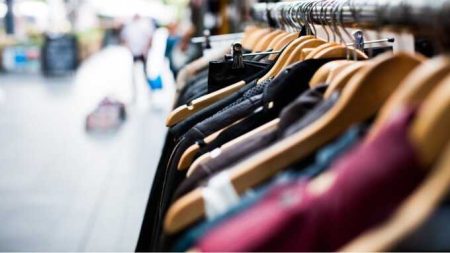The Ministry of Industry and Trade of Russia has created a list of goods for which parallel imports will be permitted, and the Ministry of Justice is currently registering the corresponding order.
In short, Russian authorities have given the green light for the import of products from Apple, Samsung, Tesla, Bentley, and other brands without their permission.
On March 30, the Russian government legalized parallel imports, allowing the import of goods without the copyright holder's permission. The Ministry of Industry and Trade was tasked with determining the list of brands for which parallel imports will be officially allowed.
how report Izvestia reports that the list, which includes two hundred brands, is now prepared.
Brands are allowed again.
According to sources, the sale of over fifty groups of goods, including finished products and components, is proposed to be allowed without the copyright holder's permission.
These groups include auto parts, leather and fur products, hygiene products, computers, smartphones, and transport.
The department used different approaches for allowing parallel imports, proposing either entire categories of goods or specific brands.
Parallel imports will be permitted for smartphones, headphones, and watches from Apple, as well as gadgets from Siemens, HP, Nokia, Sony, and Samsung. The Ministry of Industry and Trade also plans to facilitate deliveries of Tesla, Volvo, Cadillac, Jeep, Jaguar, and others.
The list also encompasses a large number of car components such as tires from Continental, Goodyear, Michelin, Bridgestone, sensors and blocks from Wabco, and engines from Hyundai, Nissan, Volkswagen, Toyota, Deutz, and Kubota.
Additionally, the list includes equipment for various industries, including mining, electric power, railway and shipping transport, agriculture, and timber processing.
The final list does not include jewelry and furniture. The Ministry of Industry and Trade emphasized that the former lack strategic importance and the latter can be effectively produced domestically to fill the gap.
For categories such as clothing and footwear, the goods are suggested to be allowed without any limitations, without a selective approach from the department.
FAS Stance
The Federal Antimonopoly Service, which previously opposed parallel imports, has now reconsidered its position, acknowledging the need to protect the continuous production of goods in Russia under the current conditions.
Previously, suppliers' actions were considered unfavorable, and violators were required to destroy the entire imported batch and pay the copyright holder a substantial compensation ranging from one hundred thousand to five million rubles if such schemes were discovered.
It should be mentioned that in Russia, as a member of the EAEU, there is a rule that trademarks can only be used within a specific region. However, now companies will not be held responsible for importing parallel imports based on a list.
“Customs officers are currently checking if a company wants to import goods from a list of authorized persons of the copyright holder. If they do, they allow it. If not, they inform the copyright holder. We won't do this if parallel imports are allowed,” explained Ruslan Davydov, First Deputy Head of the Federal Customs Service, earlier.
Good or bad?
Experts have different opinions about the legalization of parallel imports. While most agree that it is necessary and beneficial, some are concerned about potential negative outcomes.
Imports to Russia have already decreased by about a third. The new supply rules will help make up for the voluntary withdrawal of Western companies from the market, but won't solve the issue of sanctions restrictions, according to experts.
Many see the parallel import of spare parts as a solution for the industry, as otherwise all equipment, especially commercial ones, will stop working in the future.
Currently, vehicles can only be repaired under warranty using original spare parts, which only the brand owner can import into the country. It's important to note that parallel importers importing products to Russia will not prevent consumers from receiving warranty service and technical support.
Director of the International Center for Competition Law and Policy of the BRICS Countries at the National Research University Higher School of Economics notesstated that the measure is not a complete shift to the international exhaustion of rights principle, but it will facilitate the creation of alternative supply channels that are currently relevant.
Now importers will be able to buy spare parts, for instance, in Turkey, the UAE, or Kazakhstan, which will change the logistics flows.
However, the measure will not solve the problem of importing goods subject to sanctions, as their turnover will likely be closely monitored by American and European regulators, so supplier companies also risk being blacklisted.
According to Deloitte partner Tatyana Kofanova, allowing parallel imports of premium car brands is logical in the current situation. Due to the existing sanctions, there is simply no other way to deliver them to Russia.
However, the expert also mentions the possible risk of secondary sanctions from the United States or the European Union on this matter. The difficulties of delivering spare parts for such cars should not be overlooked.
Permission for counterfeit?
The government emphasizes that parallel imports only involve the supply of branded products. It's just that goods will be purchased from a “different place” and according to a “different scheme”. However, it's clear that the risk of counterfeiting in such a situation will significantly increase.
According to officials, the original spare parts for cars of Japanese or European brands imported from Turkey or Kazakhstan will not differ in any way from those that were previously supplied to the country by the concerns themselves and official dealers.
At the same time, technical support and warranty service for customers will be maintained in the same volume as before.
However, common sense dictates that these statements should not be fully trusted. The risk of counterfeit imports increases, if only because it is impossible to prove the origin of products supplied under its trademark without brand representation in Russia. And if so, then why buy an expensive original, if you can get by with a cheaper fake?
how assures Head of the Federal Customs Service of Russia Vladimir Bulavin, the legalization of parallel imports will not open borders for counterfeit goods. He insists that these innovations involve the import of only original quality products.
However, one should not forget that the goal of any business is to make money, and counterfeit in this sense is more profitable, especially if we take into account the serious costs of companies when organizing a parallel import scheme.
In addition, it is not yet clear who exactly will issue the guarantee promised by the Federal Antimonopoly Service for the repair and maintenance of household appliances and other complex products imported through alternative channels and fulfill obligations to consumers.
In addition, the legalization of parallel imports leads to a weakening of customs control, which, in turn, causes the growth of the shadow sector of the economy.
Another important point, subject to the use of the parallel import scheme, was noted by the representative of the RATEK association Anton Guskov. According to him, it is important to organize the process in such a way as to exclude the possibility of a deterioration in the situation of production facilities operating in Russia, as well as those manufacturers that supply goods using direct import mechanisms.
The difficult question of price
What will be the price of goods imported to Russia by parallel imports, so far neither manufacturers nor experts undertake to predict.
Due to the complexity of the scheme, the cost of such products can increase significantly.
However, it is possible that in some cases the products may be cheaper compared to those goods that were imported into the country with the consent of the copyright holder.




